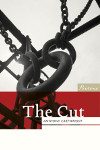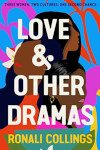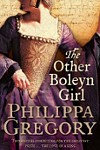Interview With Anthony Cartwright, Author Of Peirene Press’ The Cut
Posted 28th June 2017
Category: Interviews Genres: N/A
Comments Off on Interview With Anthony Cartwright, Author Of Peirene Press’ The Cut

Last year, Peirene Press launched the first title in their ‘Peirene Now’ imprint series. breach, lower case intentional, delivered a collection of short stories about the refugee camp in Calais and various people’s opinions on it. This month second book, The Cut is being released, a response to Brexit, a fictional conversation about the reasons people voted ‘leave’ or ‘remain’.
I said ‘yes’ to the invitation to interview the author; here is the result.
How did you come to write The Cut?
I was approached in the summer of last year by Meike Ziervogel of Peirene. I took it on for a few reasons. The first was that I thought I could do a good job – I’d written about some of the divisions and inequalities that seem to have underpinned much of the vote in my previous work. I also knew I would write about Dudley again. And it was a chance to work with Peirene, whose books I really admire, as part of a fascinating project.
The book opens with a bit of ambiguity. Was this a concious decision, to reveal what was going on, who was involved and how, slowly?
That sequence in Dudley market-place was the first thing I wrote. It wasn’t entirely clear to me who was on fire when I first wrote it. And although it’s probably too simple to say that I wrote the rest of the story to find out who it was, we certainly made a conscious decision while editing to focus on the slow revelation of how a woman comes to run through Dudley on fire. In fact, it was Meike as editor who picked up on this and asked me to pursue it.
There are various ways a book about the Brexit divide could be written because of the effects on both large and individual scales. You chose to focus on two individuals. Why did you decide to do this, and could you tell us about their relationship?
Cairo and Grace’s relationship might be best summed up as mutual attraction but also mutual incomprehension. For the story to work I think it had to be about individuals and a very specific place and set of circumstances. I mean this as a kind of antidote to the massive generalisations all sorts of people were making after the referendum – that we had 17 and a half million racists on one side and 16 million people who were happy with a kind of social apartheid based on class on the other – that kind of thing! I think fiction is able to explore specifics and the emotions of the characters, and this seems more difficult in mainstream political discourse. Of course I also have the luxury of asking questions without having to give answers.
Throughout, the book is subtle in its look at Brexit – the reader often has to look into what else is happening to make the connections – and you include a sort of acknowledgement of this late in the book when Cairo talks about people just living life alongside the debates. Could you tell us more about that?
Some of the great tiredness Cairo talks about at a similar stage in the story is connected with this. He talks about the kind of deep fatigue of having to live lives out on what seems to be the wrong side of a historical divide. To Cairo the hysteria around the referendum is just one more episode in the slow (although sometimes very quick) structural violence that has been done to his community and the place he lives. Something that struck me was the remainers talk of a ‘catastrophe’ after the result, but for many people and places the catastrophe has been going on for generations now. There were plenty of people on both sides of the Brexit divide quite happy to ignore that fact.
What are your hopes for the publication of The Cut, and for Britain going forward in the negotiations?
My own immediate hope is that we get a Labour government in power, fulfilling the promises of the recent manifesto. Economic and social justice should be what matters, the negotiations will have to be driven by that, not the other way round. As for The Cut, well, it’s published now, so if people read it and it makes them think, that would be great.
My thanks to Anthony and to James at Peirene for setting it all up. The Cut is out now. For more information, go to Peirene’s site or The Guardian’s review.
No Comments
Comments closed






















